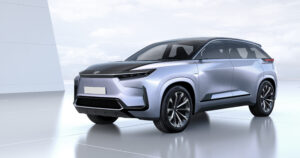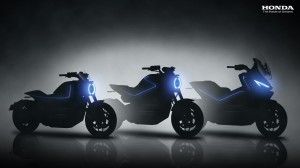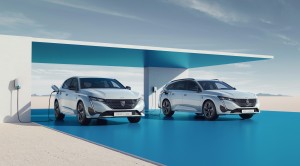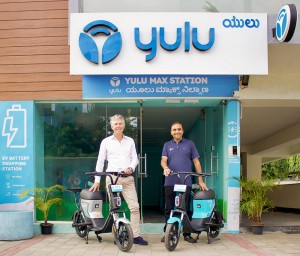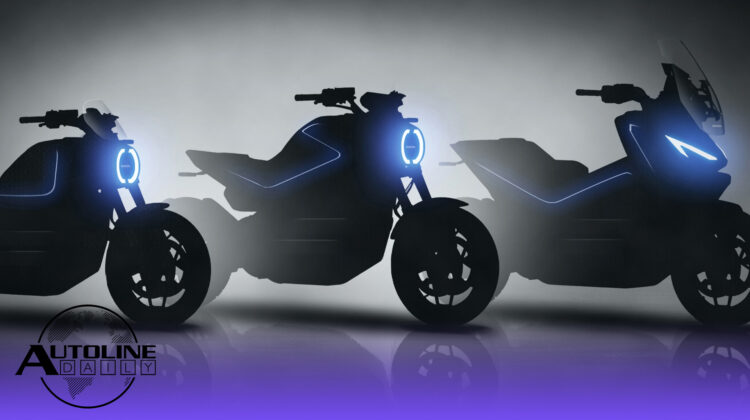
Listen to “AD #3404 – New Toyota EV Coming in 2024; Honda Taking Electrification to 2 Wheels; Peugeot 1st with BEV Wagon” on Spreaker.
Follow us on social media:
Runtime: 8:40
0:00 German OEMs Sued For Not Fighting Climate Change
1:00 GM Cruise Expands to Phoenix & Texas
1:35 Toyota bZ5x Coming in 2024
3:09 Honda Expanding Electrification to Two Wheels
4:15 Peugeot 1st EU OEM with BEV Station Wagon
5:00 China Has More EV Chargers Than Anyone Else
6:30 Magna Invests in Micro Mobility & Battery Swapping
7:12 BMW Making Trim Parts from Ocean Waste
Visit our sponsors to thank them for their support of Autoline Daily: Bridgestone, Dolby Atmos, Intrepid Control Systems, MEDC and Schaeffler.
This is Autoline Daily, the show dedicated to enthusiasts of the global automotive industry.
GERMAN OEMs SUED FOR NOT FIGHTING CLIMATE CHANGE
Here’s a development we’ll have to keep an eye on. Mercedes-Benz was sued in Germany for infringing on people’s freedom because it’s not doing enough to fight climate change. A German court dropped the lawsuit because it says this is a matter for the legislature to decide, not the courts. But the NGO, or non government organization, that filed the lawsuit says it will appeal to a higher court. That NGO, which goes by the acronym D-U-H, or duh, wants Mercedes to stop making IC engines by the end of the decade. It is also going to sue BMW and Reuters reports that a German farmer is suing VW, also over climate change. The plaintiffs are encouraged by a ruling from Germany’s top court that the country’s climate laws are not doing enough to protect future generations.
GM CRUISE GOING TO CHARGE FOR AV RIDES IN ARIZONA & TEXAS
GM Cruise is adding two more markets for its robo rides. In June Cruise started charging for rides in San Francisco, and it will add Phoenix, Arizona and Austin, Texas in the next three months. There have been issues with its AVs, but Kyle Vogt, the CEO of Cruise, says autonomous technology is no longer holding them back and that they plan to grow very quickly. Mary Bara, GM’s CEO, set a target for Cruise to generate $50 billion a year in revenue by the end of the decade.
TOYOTA bZ5x COMING IN 2024
Toyota is a little late to the EV party but it hopes to make up for lost time. It will launch 30 EVs from both the Toyota and Lexus brands by the end of the decade. The Toyota bZ4x is already on sale, the bZ3 goes on sale in China later this year and its next EV in the lineup will be the bZ5X. It’s a larger, 3-row SUV that will probably start around $50,000. Autoforecast Solutions reports the model will go into production at Toyota’s assembly plant in Georgetown, Kentucky in January of 2024. That will qualify it for at least a $4,000 EV subsidy for being built in the U.S. market.
HONDA EXPANDS ELECTRIFICATION TO TWO WHEELS
Honda says it wants to be completely carbon neutral by 2050 and now it’s turning its attention to motorcycles. Its first initiative will be to expand the use of ICE models that can run on ethanol to India starting next year. On the electrification front, Honda plans to launch 10 or more new electric motorcycles by 2025. That includes small commuter motorcycles, which will be offered in China, other parts of Asia, Japan and Europe. They’ll mostly feature swappable battery packs, but Honda says it’s also developing power sources besides swappable batteries, including solid-state. Those fixed batteries are more likely to be used in what it calls “FUN” motorcycles, which are larger and will be offered in Japan, the U.S. and Europe. Within the next five years Honda plans to increase annual sales to a million units and 3.5 million electric motorcycles by 2030. That sounds like a lot, but it’s only 15% of its total motorcycle sales.
PEUGEOT 1ST WITH FULLY ELECTRIC WAGON
Speaking of EVs, Peugeot says it will be the first European automaker with a fully electric station wagon when it launches the new E-308 SW next year, which will be accompanied by the sedan version as well. They feature a brand-new electric motor that generates 115 kW or 156 horsepower. It’s fed by a 400-volt battery pack with 51 kWh of useable space that’s estimated to return 400 kilometers or roughly 250 miles of range on the WLTP test cycle. Also available with ICEs and as a PHEV, this electric setup will likely round out the new 308 lineup.
CHINA HAS MORE EV CHARGERS THAN ANYONE ELSE
And one thing all EVs need is a place to charge and China has more places to plug in than any other country. Through the first 8 months of the year, it’s added nearly 1.7 million new chargers or what China calls charging piles. That brings the total to more than 4.3 million charging piles across China. It’s also expanding the number of battery swapping stations. NIO announced it opened its 1,100th swapping station, which means it’s capable of doing more than 30,000 battery swaps a day and has so far done more than 12 million to date.
MAGNA INVESTS IN MICRO MOBILITY & BATTERY SWAPPING
For a supplier company, Magna is sure making some interesting moves. We already showed you the autonomous delivery pods that it’s going to make. Now it’s jumping into micro mobility. It invested $77 million in an Indian company Yulu, which operates a network of 10,000 low-speed, electric two-wheelers in Bangalore, Delhi and Mumbai. And it plans to expand to 15 more cities there in the next year and a half. In addition to that, the two companies are forming a battery swapping company to support its electric mobility business. Like China, India is planning on developing a battery swapping network to help boost sales of EVs.
BMW TURNING OCEAN WASTE INTO TRIM PARTS
BMW is committed to making vehicles more sustainable. Last week, the automaker announced it will offer fully vegan interiors starting next year and now it’s committed to using recycled plastics in its next-gen electric vehicles. Starting in 2025, EVs based on its Neue Klasse architecture will feature trim parts made from recycled ocean plastic like fishing nets and ropes. BMW says the carbon footprint of the recycled plastic is about 25% lower than conventionally made plastics. Currently, some automakers use fibers for materials made from recycled ocean plastic but thanks to a new recycling technique, BMW can create pellets from the material that is suitable for injection molding for the first time. The company is aiming for recycled materials to account for 40% of thermoplastics used in new vehicles by 2030.
But that’s it for today, thanks for watching.
Thanks to our partner for embedding Autoline Daily on its website: WardsAuto.com
Seamus and Sean McElroy cover the latest news in the automotive industry for Autoline Daily.





